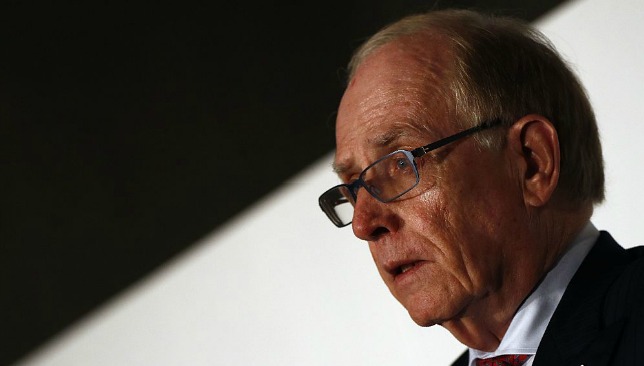
Perhaps the most chilling aspect of Friday’s revelations regarding Russian state-sponsored doping is not what was contained in the McLaren report itself; it’s the fact that not a single athlete was caught prior to London 2012. Because, given what Richard McLaren has subsequently laid out on the table four years later, if anti-doping authorities were powerless to prevent this occurring now, then what hope do we have for what has happened in the past.
It’s no longer a conspiracy theory to assume that every single Olympic Games and World Championships has been swamped by similar levels of foul play. We knew of East Germany, Ben Johnson and Marion Jones, but those cases are not so much the tip of an iceberg, but an ever-expanding glacier.
In McLaren’s own words, it was sporting corruption on an “unprecedented” scale. For this to be revealed in 2016, more than 30 years after a similar but, given the political climate, more difficult to police programme was carried out by East Germany.
The world is, technically, a far more open place now. Country’s cooperate more and, theoretically, information can be shared freely. But despite a greater cultural openness, athletics and the Olympic movement are facing the same problems they did decades ago. In the context of supposedly possessing greater awareness of doping practices following the establishment of the World Anti-Doping Agency (WADA) in 1999, it’s arguably much, much worse.
As Sebastian Coe said in 2011: “What I can say to athletes coming to London is that we will have the technology in place that is in excess of any technology that you have ever encountered anywhere in the world, we will have the technology in place that is in excess of any technology that you have ever encountered. You come to London and you try that, we will get you.”
Coe did confess he couldn’t guarantee a drug-free Games, but what is abundantly clear is that the systems in place don’t work. The cheats aren’t within reach, they’re off in the distance laughing at these sort of grandiose statements.
Russia, laughably, were one of 181 states to have signed the International Convention against Doping in Sport in 2005.
WADA receive half of its annual $30 million budget from the IOC and the other 50 per cent from international governments. The increase must be stratospheric. Whatever the price of hosting the next Games – and Rio 2016 cost an estimated $4.6bn – it must be mirrored in the funding and resources WADA are given to work with. Because the integrity of not just athletics and the Olympics but of sport itself, are at stake here.
We know about Russia because McLaren has conducted an exhaustive and thorough review. How many other countries have escaped detection? Not only that, but how many other sports are operating with nations, teams, individuals, practising the same subterfuge. A large stone has been dropped in the lake and this is the ripple effect.
We are also at the stage now where growing public opinion is along the lines of: “why not just let them dope?”. That, alone, is a damning indictment of the repeat failures of organisations and their commitment to anti-doping.
Remember that this all began not with the will of those at the top to investigate Russia off their own backs, but with German broadcaster ARD and their series of exposes in 2014. We all hope and believe FIFA, World Rugby, the ICC, NBA, NFL, UCI etc, adopt stringent anti-doping policies to ensure this sort of behaviour can never happen. But hope is all we have.
The IOC said in a statement in July it could no longer trust Russia to host any major international sporting events. Yet in less than two years the country will be playing host to the biggest of them all: the football World Cup.
The man in charge of the bid that landed them the tournament has been directly implicated in the McLaren report – deputy prime minister Vitaly Mutko, who still sits on the FIFA Council.
FIFA will tell us they have the machinery and the motivation to ensure a clean World Cup, and we have no choice but to place our trust in them, despite our better judgement telling us otherwise.
Because we can never explicitly know the truth. And that is the scary reality.